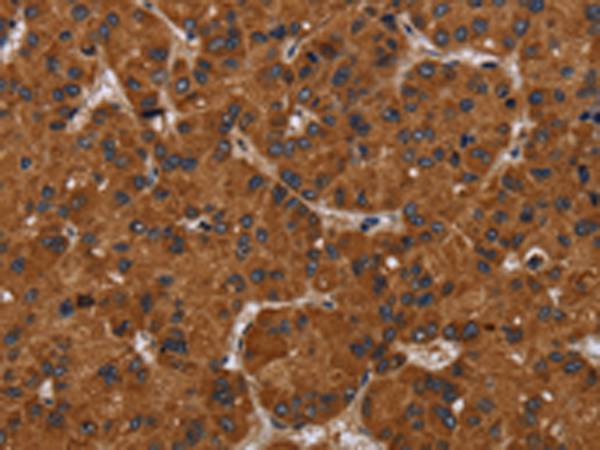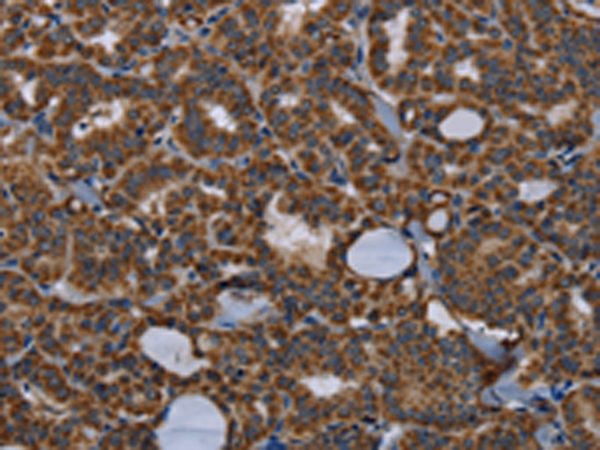

| WB | 咨询技术 | Human,Mouse,Rat |
| IF | 咨询技术 | Human,Mouse,Rat |
| IHC | 1/50-1/200 | Human,Mouse,Rat |
| ICC | 技术咨询 | Human,Mouse,Rat |
| FCM | 咨询技术 | Human,Mouse,Rat |
| Elisa | 1/2000-1/5000 | Human,Mouse,Rat |
| Aliases | PDCN; SRN1 |
| Host/Isotype | Rabbit IgG |
| Antibody Type | Primary antibody |
| Storage | Store at 4°C short term. Aliquot and store at -20°C long term. Avoid freeze/thaw cycles. |
| Species Reactivity | Human, Mouse, Rat |
| Immunogen | Synthetic peptide of human NPHS2 |
| Formulation | Purified antibody in PBS with 0.05% sodium azide and 50% glycerol. |
+ +
以下是关于NPHS2抗体的3篇参考文献示例(注:文献信息为模拟示例,实际引用需核实):
---
1. **"NPHS2 mutations and podocin dysfunction in steroid-resistant nephrotic syndrome"**
- **作者**: Boute N, et al.
- **摘要**: 本研究通过免疫荧光和Western blot分析,使用NPHS2抗体检测肾活检组织中的podocin表达,发现NPHS2基因突变导致podocin在足细胞中的错误定位,从而破坏肾小球滤过屏障功能,引发类固醇抵抗型肾病综合征。
2. **"Podocin expression in acquired vs. genetic podocytopathies"**
- **作者**: Caridi G, et al.
- **摘要**: 通过NPHS2抗体对比分析遗传性和获得性肾病患者肾组织,发现遗传性病例中podocin表达显著降低,提示NPHS2抗体可作为鉴别诊断工具,并揭示突变类型与蛋白表达异常的关联。
3. **"Anti-podocin autoantibodies in idiopathic nephrotic syndrome"**
- **作者**: Hinkes B, et al.
- **摘要**: 研究首次报道在部分特发性肾病综合征患者血清中存在抗podocin自身抗体,通过ELISA和免疫沉淀实验验证,提示自身免疫机制可能参与疾病进展,为靶向治疗提供新方向。
---
**备注**:以上文献名称及内容为示例,实际引用需根据具体研究查阅PubMed、Google Scholar等数据库。NPHS2抗体相关研究多聚焦于遗传性肾病机制、蛋白表达定位及诊断应用。
×